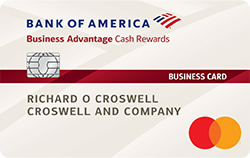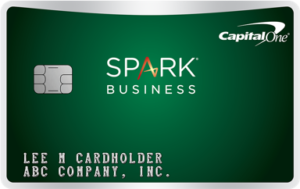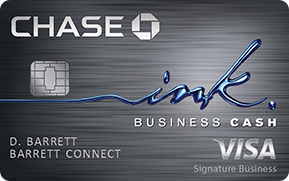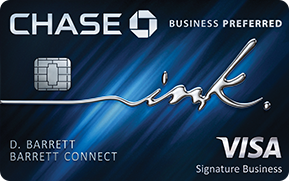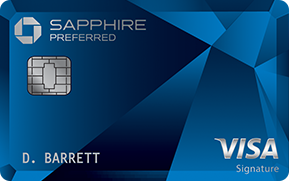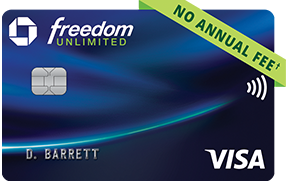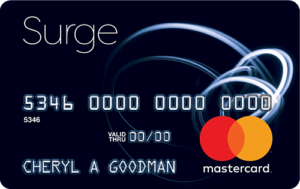It’s easy to think of freelancing as a gig or a job. But, if you are freelancing full-time, you are a small business owner. Your business is you. You and the services you offer.
As a small business, there are a handful of benefits to getting a business credit card. Read through to find out our favorite small business credit cards for freelancers. And, as a bonus, check out some of our favorite personal credit cards at the end.
Page Contents
Why you should get a small business credit card
 First and foremost, a small business credit card helps you separate your business expenses from your personal spending. As a business owner, you always want to have an idea of your expenses vs. your income.
First and foremost, a small business credit card helps you separate your business expenses from your personal spending. As a business owner, you always want to have an idea of your expenses vs. your income.
By opening a small business card, you can keep all of your business expenses in one place. This will help you when filing your taxes and when tracking your budget.
Another reason to consider a small business credit card is that you can start building your business credit. Your business credit score is separate from your personal credit score. If you want to secure a loan for your business, you’ll need a good business credit score. You can establish this by opening a business card and managing your money responsibly. To learn more about business credit scores, you can check out this article by CreditKarma.
And finally, small business credit cards have perks that you may not get from your personal card. Most business cards come with better terms than your personal credit card, including higher spending limits. Several small business cards now offer better sign-up offers than are available for personal credit cards.
What is a small business credit card?
Small business credit cards are a type of business credit card. They work similarly to your personal credit cards by giving you access to a line of credit. However, these cards are meant for business expenses only.
When you apply for a small business credit card, you’ll be asked for information about your business. Typically, these are estimates of the monthly income and expenses. But, if you don’t have these yet, don’t worry. Your application will also include information about your personal finances.
Your business card can also provide employee cards. So, they’re a great option if you’re considering expanding in any way.
What to consider when choosing a small business credit card
As a freelancer, you should plan to have a small business credit card. Even if it’s a side-hustle. It will simplify your taxes (and your life) tremendously.
But, how to go about choosing the right card?
Well, keep in mind that there is a huge variety of small business credit cards. While you may use yours for freelancing, others are using them to finance very different types of businesses. Your needs as a freelancer will likely be very different from a bakery down the street or a small clothing boutique.

Here are the items you should consider when choosing a credit card for your freelance business.
- Annual Fees: Most business cards do have an annual fee (but not all of them). These tend to be around $100. Compare the annual fee with the rewards/points to see if it’s worth it for you.
- Payment window: Determining how long you have to pay your credit card. As a freelancer, you will have variable income. Avoid cards with payment windows that are too short.
- Signup offer: Many business cards offer rewards for signing up and spending a minimum amount in the first few months. Find an offer that fits your business and lifestyle.
- Rates and fees: Check to see if your interest rates are fixed or variable. And, take time to see what can cause an increase in your rates.
Best Small Business Credit Cards for Freelancers
Bank of America Business Advantage Cash Rewards Mastercard credit card
Credit card with no annual fee and customizable rewards options.
Overview
The Bank of America Business Advantage Cash Rewards Mastercard credit card is a great small business credit card option with no annual fee. Since there is no annual fee, the perks are not going to be as competitive as some other credit cards. However, they are extremely customizable.
Annual Fee
$0
Sign-up bonus
Earn $300 statement credit if you spend $3,000 in the first 90 days.
Ongoing rewards
With this BoA card you can customize your points structure. You’ll earn 3% cashback on a business category of your choice, and you can change the category each month. In addition to that, you get 2% rewards on dining and 1% back on every other purchase.
This card also has an impressive preferred rewards program for those that qualify. As a preferred member, you can earn 3.75%-5.25% cashback on your business category.
Click here to apply for a Bank of America Business Advantage Cash Rewards Mastercard.
Capital One Spark Cash for Business
Flat-rate cash back card for freelancers that prefer simplicity and consistency.
Overview
With the Capital One Spark Cash card you earn 2% cashback on every purchase. And, since it’s cashback, you can use your rewards however you choose.
As a freelancer, your travels won’t often qualify as business expenses. Likewise, you won’t be using plenty of office supplies or have too many software expenses. So, a flat-rate credit card might be the perfect solution.
If you’re looking to maximize your rewards in each category, this might not be the right primary business credit card for you. But, if you want a business credit card that will simplify your finances and rewards, consider the Capital One Spark Cash.
Annual Fee
$95 (waived the first year)
Sign-up Offer
Earn $500 cashback when you spend $4,500 in your first three months. You’ll also earn your 2% cash-back on top of the $500 bonus.
Ongoing rewards
As mentioned before, this card gives 2% cashback on all purchases. Use your rewards however you like.
Additional Perks
- Employee credit cards at no additional cost
- No foreign transaction fees
- Purchase protection for up to 90 days on eligible purchases
- Travel and emergency assistance
- Export purchases to several accounting software programs
Click here to apply for a Capital One Spark Cash Business Credit Card.
Chase Ink Business Cash Credit Card
A simple business card with excellent travel rewards options for those with Chase personal credit cards.
Annual Fee
$0
Overview
Like the Bank of America card, the Chase Ink Business Cash Credit Card is a no-annual-fee business card, which makes it a great choice if you’re just starting out. It also offers 0% APR for the first 12-months.
If you have a personal credit card that earns Chase Ultimate Rewards, the Chase Ink card can help you earn more points in different categories. The Chase Ink specifically offers more rewards on office supplies, gas, and dining.
Sign-up bonus
Earn $500 when you spend $3,000 in the first three months. However, if you have another Chase card earning Chase Ultimate Rewards you can transfer the $500 reward to your card as 50,000 points.
Ongoing rewards
Earn 5% cashback on your first $25,000 each year at office supply stores, on internet, and in cable and phone services. Additionally, you earn 2% cashback on restaurants and gas for the first $25,000 in purchases.
All other purchases earn 1% cashback. This includes office supplies, internet, cable, phone, restaurants, and gas after you’ve spent the first $25,000 each year.
Additional Perks
- Employee cards at no extra cost
- Set individual employee spending limits
- Purchase protection and extended warranty for qualifying purchases
- Travel and emergency assistance as well as legal referrals abroad
- Zero-liability protection in case of fraud
Click here to apply for a Chase Ink Cash Credit Card.
Chase Ink Business Preferred Credit Card
An excellent card all-around with a sizable sign-up offer.
Annual fee
$95
Overview
The Chase Ink Business Preferred Credit Card is one of the best rewards points options. It comes with a reasonable annual fee of $95 as well as other perks, like cell phone protection.
This card is an excellent choice for business owners who want to max out rewards points. If you’re a traveler, this can be especially appealing to you. The card also has the largest potential sign-up bonus on this list, however, it does require spending $15,000 in the first three months.
If you incur higher expenses for your business, such as travel, shipping, or advertising, consider the Chase Ink Preferred.
Sign-up offer
Earn a sign-up bonus of 100,000 (~$2,000) Ultimate Rewards points when you spend $15,000 in the first three months.
Ongoing rewards
Earn 3x Ultimate Rewards points on the first $150,000 spent in travel, shipping, internet/cable/phone service, and search engine or social media advertising.
All other purchases earn 1 point for every dollar you spend. Likewise, once you pass the $150,000 spending in the bonus categories, you will continue to earn 1 point per dollar in those categories. The $150,000 rewards limit resets each calendar year.
Additional perks
- Employee cards at no additional cost
- Cell phone protection if you pay your phone bill with the card
- Trip cancellation insurance/trip delay reimbursement
- Extended warranty protection for qualifying U.S. manufacturers
- Accounting insights
- Bookkeeping integration
Click here to apply for a Chase Ink Business Preferred Card.
Chase 5/24 Rule
Since several cards mentioned in this article are provided by Chase Bank, we’d like to take a moment to talk about the Chase 5/24 Rule.
The 5/24 rule states that if you have applied for 5 or more personal cards in the last 24 months, your application for a Chase card will likely be denied. All of the Chase cards mentioned in this article are subject to the Chase 5/24 rule.
To learn more or see how many applications you’ve had, check out this Ultimate Guide on the Chase 5/24 Rule by the Points Guy.
Best Personal Credit Cards for Freelancers
Many freelancers choose to leave their 9-5 so they can design their ideal lifestyle. Choosing the right personal credit card can also help you maximize your rewards in the areas that matter most to you.
Here are four credit cards we recommend for freelancers.
Travel – The Chase Sapphire Preferred Card
Annual fee
$95
Sign-up offer
Earn 60,000 points when you spend $4,000 in the first three months. ($750 in travel when booked through Chase Ultimate Rewards)
Minimum credit score range
690-850 (Good-Excellent)
Ongoing rewards
The Chase Sapphire Preferred Card lets you earn 2x points on all travel (and 5x on Lyft through 2022). All other purchases earn 1 point per dollar spent. Additionally, when you book your travel through Chase Ultimate Rewards, your points are worth 25% more. So, when you spend your points on travel you get more. However, you can still use your points on other categories without the 25% bonus.
In addition to earning more on travel, this card also has no foreign transaction fee. So, it’s an ideal card for purchasing travel and using while you’re abroad.
Click here to apply for a Chase Sapphire Preferred Card.
Alternative – Chase Sapphire Reserve
If you are an avid international traveler, you may want to consider the Chase Sapphire Reserve with an annual fee of $550. It comes with 3x rewards on all travel and a $300 statement credit on travel each year.
This card usually requires a credit score of 720 or higher. The Sapphire Reserve also provides a $100 credit towards TSA precheck and Priority Pass access to over 1,000 airport lounges worldwide.
Cashback – Chase Freedom Unlimited
Annual Fee
$0
Sign-up offer
Earn $150 when you spend $500 on purchases in the first three months. 0% intro APR for the first 12 months.
Minimum credit score range
690-850 (Good–Excellent)
Ongoing rewards
With the Chase Freedom Unlimited, you earn 1.5% cashback on all purchases. Unlike some cash back cards, there is no minimum reward amount to redeem your cashback. You can use your points as a statement credit or transfer to other Chase cards including Chase Ultimate rewards.
This card is simpler than others with no bonus categories for earning. However, it is on the higher end of the rewards percentage for a cashback card. If you are traveling, it should be noted that this card does have a 3% foreign transaction fee.
Click here to apply for a Chase Freedom Unlimited Card.
Students – Discover It Student Chrome
Annual fee
$0
Sign-up offer
Unlimited cashback match (dollar for dollar) in your first year. 0% APR for the first 6 months.
Minimum credit score range
630-689 (Average)
Ongoing rewards
If you’re a student looking to get a first credit card, Discover has some of the best options. With the Discover It Student Chrome card, you don’t need a FICO history to apply.
Cardholders get 2% cash back on the first $1,000 spent each quarter on restaurants and gas stations. All other purchases earn a flat rate of 1% cash back. This includes anything you spend on restaurants and gas stations after the $1,000 each quarter.
It should be noted that Discover card is not as widely accepted as other providers. However, they have been working to correct this in the past few years.
Click here to apply for a Discover Student Chrome Card.
Low/Average Credit Score–Surge Mastercard Credit Card
If you have bad/average credit, it’s still possible to get a credit card. However, it’s important to be careful of some predatory practices. The Surge Mastercard Credit Card is a viable option for those looking to build their credit.
It reports to all three major credit bureaus monthly. So, if you consistently borrow less than 30% of your limit and pay on time, you can build your credit score over time.
The Surge card has an annual fee ranging from $75-$99. After the first year, you may also be charged a monthly maintenance fee of up to $10. Once you have built up your credit score we recommend switching it out for another card with fewer fees and a lower APR.
Annual fee
$75-$99
Sign-up offer
None
Minimum credit score range
All applicants welcome
Ongoing rewards
None
Click here to apply for a Surge Mastercard Credit Card.
In Conclusion
Whether you are freelancing full-time or using it as a side hustle, it’s important to keep your business expenses separated from your personal spending.
Investing in a small business credit card is an easy way to keep your business expenses in one place and earn more rewards on certain categories. Most business cards also offer the ability to export your purchases directly into popular accounting softwares. By doing so, it makes your life much more pleasant come tax time.
As a freelancer, you want to select credit cards that fit your lifestyle and your business. With the right combination of business and personal credit cards, you can achieve your goals, whether that’s simplicity, maximum rewards, or travel.
Remember, freelance might be your job, but it’s also a small business. The best way to be successful is to treat it like one. Especially when finances are involved.

